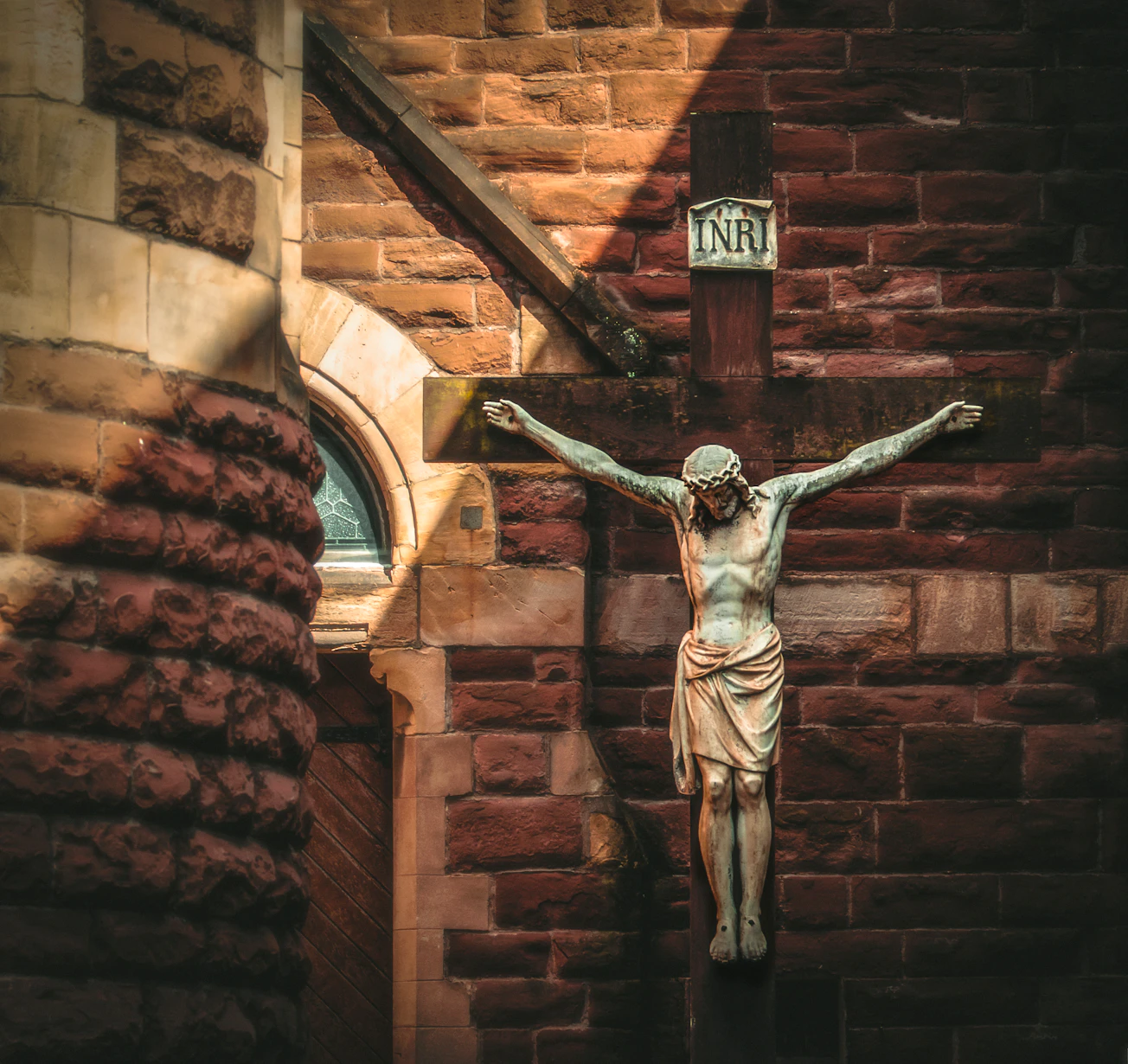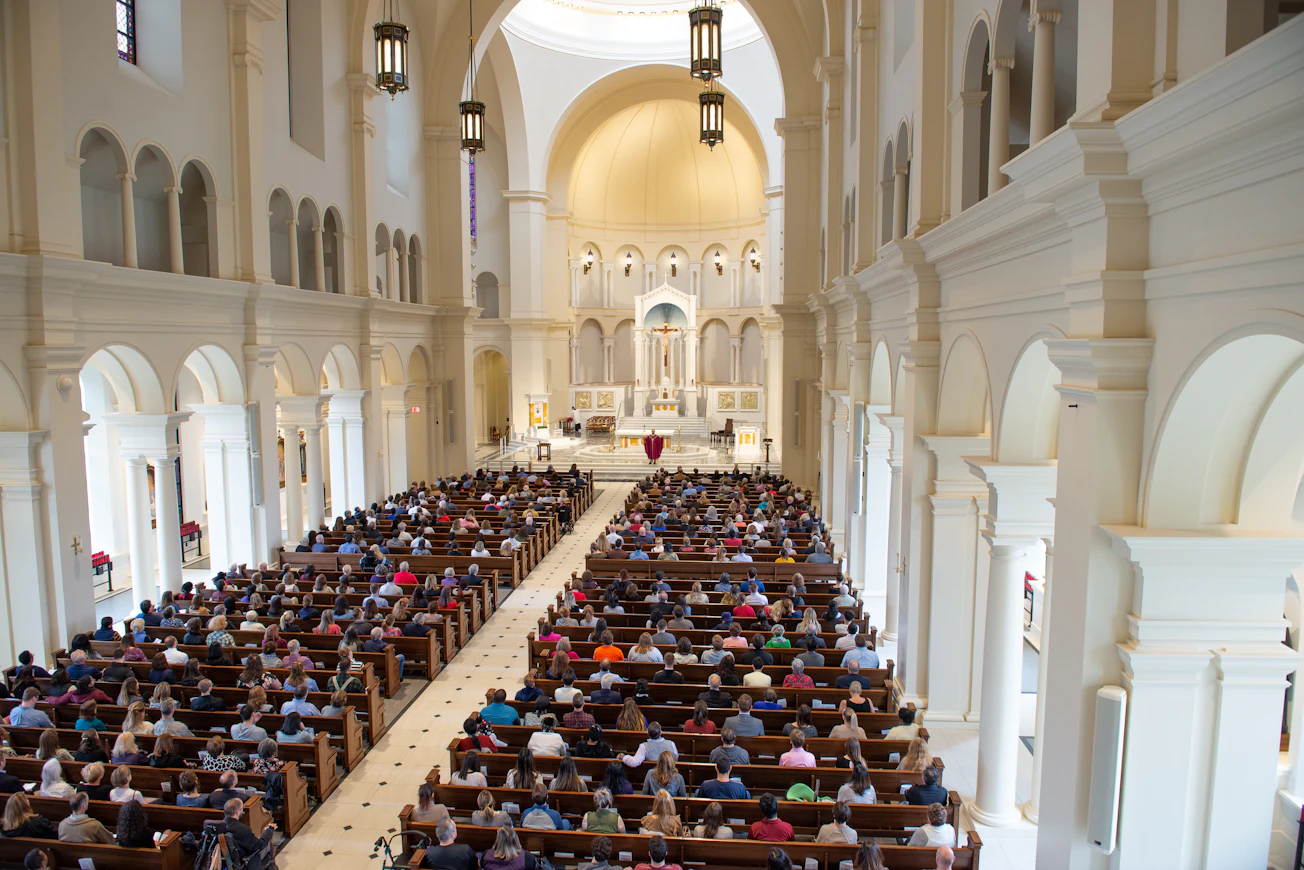Table of Contents
In my last story, The war against the Catholic Church, I spoke about the Strategy of Catholic Spiritual Warfare.
In this story, we’re going to derive 5 principles that we can apply in our daily lives so that we are more effective in battle. All 5 principles will be derived from the following passage and other supporting passages from Sacred Scriptures:
Finally, be strong in the Lord and in the strength of his might. Put on the whole armour of God, that you may be able to stand against the wiles of the devil.
For we are not contending against flesh and blood, but against the principalities, against the powers, against the world rulers of this present darkness, against the spiritual hosts of wickedness in the heavenly places.
Therefore take the whole armour of God, that you may be able to withstand in the evil day, and having done all, to stand. Stand therefore, having girded your loins with truth, and having put on the breastplate of righteousness, and having shod your feet with the equipment of the gospel of peace; above all taking the shield of faith, with which you can quench all the flaming darts of the evil one. And take the helmet of salvation, and the sword of the Spirit, which is the word of God.
Pray at all times in the Spirit, with all prayer and supplication. To that end keep alert with all perseverance, making supplication for all the saints, and also for me, that utterance may be given me in opening my mouth boldly to proclaim the mystery of the gospel, for which I am an ambassador in chains; that I may declare it boldly, as I ought to speak.
– Ephesians 6:10–20
Now, let us look at each principle, one at a time.
Principle 1: “We do not contending against flesh and blood”

This is a common mistake that many new warriors make: they assume what they see, hear, and feel in the course of defending the faith is purely physical.
That’s so wrong.
You’re not just talking to a Republican or Democrat. This is not simply a “civil debate” between a pro-lifer and a pro-abortion person. What is actually happening is that you’re making a move against the Kingdom of Darkness.
The reason is that if you do eventually get the other person to the point where they’re willing to convert, that’s a loss for the devil and a win for God. So, even if demons cannot control a person’s God-given free will, they can influence their thoughts, emotions, and even the physical environment to make it more difficult for you to be successful.
Also, note that this battle does not only go on when you’re discussing with someone who has anti-Catholic views. You can also be tempted when you’re alone.
The general rule to remember here is this:
The ultimate goal of the evil one is to cause sin and prevent conversion.
When you keep this in mind, it’s a lot easier to discern both the moves of the evil one and the opposing will of the Holy Spirit.
Principle 2: “Be strong in the Lord and in the strength of his might”

Before we talk about the spiritual benefits of this principle, let’s look at it from a purely physical point of view.
If you were preparing to fight a physical opponent, a good way to prepare would be to study their strengths, weaknesses, and moves and come up with a counterstrategy to defeat the enemy.
The problem here is that we cannot apply the same principles with a spiritual opponent. First of all, you can’t see him, which means you can’t study his moves and find weaknesses. What’s worse is that any physical blow you throw at him won’t land.
So, for purely “physical” reasons, you need another spirit on your side to help you out with this one.
But God isn’t just a spiritual combat strategist whose job is simply to help you land a punch on the devil. No, not at all. God brings something more important to the table: Grace!
Grace is the supernatural gift of God that enables us to share in the life of God Himself. It is this gift that draws you to receive the gift of faith in Christ, makes you holy, cleanses you from sin, and urges you to do good works.
Without grace, your soul would already be damned (John 3:18) and there’d be no need for a battle. The devil would simply wait and watch as your soul spends the rest of its miserable years here on earth before finally ending up in the fires of hell.
This is probably the most important reason why St. Paul advises us to depend on God, not to mention the many other reasons scattered throughout the Scriptures.
Principle 3: “Put on the whole armour of God”

The emphasis I want to make here is that St. Paul had to specify by saying “whole armour.” This means you can’t neglect any one of the elements that he listed in his Letter to the Ephesians.
This Armour of God has 6 pieces, and they are as follows:
- Belt of truth.
- Breastplate of righteousness.
- Shoes eager to evangelise.
- Shield of Faith.
- Helmet of Salvation.
- Sword of the Spirit.
I initially wanted to write a summary about each of the pieces, but I feel that won’t do this topic justice. So I wrote an entire story just on this topic so that I can go into more detail.
You can read that story here: The Armour of God — Fully Explained.
Principle 4: “Pray at all times in the spirit. Keep alert with all perseverance, making supplication for all the saints”
When St. Paul talks about prayer, he talks about it as three different things:
- Personal preparedness and fortification,
- A way to keep alert, and
- Reinforcement for your comrades at arms.
Let’s look at each one in turn.
Prayer as personal preparedness and fortification
Prayer is the lifting up of mind and heart to God (Psalm 25:1, Lamentations 3:41). Every time you pray, you connect with God and give Him control over your life.
Since God won’t mess with the free will He has given you, prayer is an important step that you must take. Think of it as both consent in a marriage agreement and your signature on a business document.
It’s not that God doesn’t know what is happening in your life, or that He cannot intervene. No, it’s that He respects your decision, whatever it is, even if that decision means that you don’t want to love Him or have anything to do with Him.
When you pray, however, you give Him your very heart and soul, and you do it freely and willingly. This gesture invites Him to cleanse you, heal you, and make you stronger.
Prayer as a way to keep alert
Jesus Christ said, “Watch and pray so that you will not fall into temptation. The spirit is willing, but the flesh is weak” (Matthew 26:41).
Pray, in a way I cannot explain, keeps the soul alert and on guard against temptation. You can think of it as a spiritual coffee, unless you’re one of the few people like me that actually feel sleepy after drinking coffee. Hehe.
Prayer prevented Daniel and his companions from denying the Almighty God and worshiping false gods (Daniel 6:10–28). Prayer would have saved St. Peter from denying Jesus, but he chose sleep instead (Matthew 26:41) and went on to deny Christ 3 times (Matthew 26:69–75).
Watch and pray!
Prayer as reinforcement for your comrades at arms
When you pray for someone else, God can work miracles in their lives just as He would when you pray for yourself. This is also a way to share love among believers: praying for each other.
Jesus prayed for His disciples (John 17:6–26). The Christians prayed for St. Peter (Acts 12:5–17). Almost all the miracles in the Bible happened because one person prayed for another. It is written:
“Therefore, confess your sins to one another and pray for one another, that you may be healed. The fervent prayer of a righteous person is very powerful.”
– James 5:16
Prayer is also a powerful tool to increase conversions, both in the hearts of believers and in the hearts of pagans and unbelievers.
If Christians only knew the power of prayer, we would cease to argue and quarrel with the people of this world, and convert more souls for the Kingdom of God.
Principle 5: “That I may declare it boldly, as I ought to speak”
This final principle is a prayer of St. Paul: “that I may declare it boldly, as I ought to speak,” and it makes perfect sense.
After fighting the same battle for years and years, it’s easy to get weary and burnt out. This is especially true for a spiritual battle where most of your progress is spiritual and you very little physical “proof” to validate your work.
The natural response of the human heart in a war like this is loss of faith. It’s difficult to hold unto something you can’t see for a very long time when everything around you is starting to look desolate.
That’s where your team comes in.
The word for Church in Latin is Ecclesia, from the Greek Ekklēsia (ἐκκλησία), which literally means the “gathering of those summoned.” It’s another reason why the Church is sometimes called the “assembly.”
You were never meant to fight this battle alone. Mortal man is too feeble, and God has given us a community to join in the battle. Though we are many, we are one body in Christ Jesus and we must all learn to depend on each other (Romans 12:5–10), including the saints in heaven who rejoice when a sinner is converted (Luke 15:7,10).
Pray for one another. Ask the saints to pray for you. And pray for me too.










